I know you’ve heard me say this about a lot of shows, but I’m going to be seriously pissed off if Ao Ashi is a one-and-done adaptation. If the production committee system hadn’t warped the industry as badly as it has, Ao Ashi being a long-running series would have been a slam dunk (pun intended). It has everything required – it’s now consistently among the top 10 franchises in volumes sold, it’s unimpeachable in quality, and the positive impact of the anime on sales is not fading – if anything it’s intensifying. If anime weren’t as pretzeled as it is, this wouldn’t even be a matter of uncertainty.
For a serious soccer geek like me, this series is basically porn. I mean, it’s not like soccer has been ignored by anime (and God knows, by manga) but writers that have both the knowledge of the game and the talent to write a great story about it are unicorns. Tsunamoto Masaya (Giant Killing) comes to mind, but his anime certainly didn’t get an adaptation as lavish as this one – though it was still great. That and Ginga e Kickoff are really the only soccer anime in recent years that rival Ao Ashi for me, and GeK being a story of 12 year-olds doesn’t have as much room to seriously get into tactics as GK and AA (though it absolutely nailed the tactical side of the game as played by kids that age – and everything else).
I said it a couple of weeks ago, but soccer at this level (and higher) is a really complicated game. Twenty players involved in a sport of constant motion – and in the modern game, the best goalkeepers function as field players too. The ebb and flow of this Esperion-Musashino match has been absolutely fascinating, both tactically and psychologically. In some sense it reminds of of a PL game where an upstart team is on-form and above one of the big six in the table when they meet, but you always have the sense that the slumbering giant could awaken at any time and restore normal service. Somewhere, deep down in their hearts, the players on Brighton or Leicester are always worrying about that possibility – and if it happens, it feels like they were expecting it.
I’ve also mentioned my frustration with Date-san and his allergy to giving specific instructions. He isn’t wrong that it’s a function of a youth coach – especially on a feeder team – to prepare his players to move up, and that can mean forcing them to figure stuff out. “Teach a boy to fish” and all that. But when Fukuda took him aside at halftime for a coach-the-coach session I figured that was where he was headed. Kids won’t get better if their entire existence is struggle and frustration. Winning helps them grow, too – and being taught something is still a form of learning. I think Date’s lack of self-confidence (which he wears as prominently as a captain’s armband) pushes him to be too passive with his players, using “coaching vs. teaching” as an excuse.
In truth, while Date does get a little more specific in his feedback to a few of his men at halftime, it’s mostly the players themselves who are responsible for their improved mettle in the second half.. Kuroda – badly cut but unbowed – talks his way into being positioned deeper as an anchor for the center backs, as well as an outlet. And – mostly thanks to Ashito’s urging – Togashi and Takeshima come to a grudging understanding of how they have to play off each other as center backs. This B-team is absolutely crying out for a leader, and as hard as it is for a first-year in the incredibly rigid Japanese social hierarchy to do so, Ashito is clearly the one who has the makeup to be that person.
For Ashi-kun himself, it’s the siblings who inspire him at the break. Fukuda steps outside what’s theoretically his role and offers Ashi tactical advice – by trying to be the one to get into finishing position, he’s throwing off the side’s shape and causing it to stagnate. He refuses to give the lad the straight answer about the future he craves, but I love the fact that Ashito never backs down or resorts to boot-licking – he says what he thinks and doesn’t mince his words. On the way back out to the pitch he spots Hana – whose presence speaks louder than her silence about what her emotions are – and prompts her for some verbal stimulation. Anything will do – the fact that he’s asking is his acknowledgement of how important she’s become to him.
When the whistle sounds, there’s no question that Esperion are bossing the match. Being as Musashino is basically relying on a one-man attack, once the CBs and Kuroda form a cohesive triangle in the center of the pitch, they can corral (and frustrate) Kuroda with relative ease. Their rock-solidity allows Asari and Ashito to be more attack-minded, and the pitch starts to slant steeply downhill towards Musashino’s end. They do what teams in this position often do – more or less abandon tactics and play nine men behind the ball, trying to stifle the opponent’s attack with numbers. But parking the bus and inviting a team with a serious technical advantage to come at you is a strategy with serious downsides.
Once Kaneda is beaten mentally (bullies hate being bullied more than anything) – which Ashi points out who stone cold directness – a siege mentality sets in for both sides. The equalizing goal is a direct result of Esperion – under Ashito’s direct instructions – doing what Musashino’s posture allows them to do. The fullbacks attack freely on the wings, and eventually Ashi and Asari swap sides in an attack. This isn’t Musashino’s usual way of playing and they don’t take to it naturally – they’re slow to react, and a perfect one-two between Eisaku and Asari (though Ashi made it happen) puts the little midfielder in against the keeper uncontested. There’s an air of inevitability to this match now, even if the scoreboard says it’s still level – as there usually is when these sorts of matchups start to turn this way.


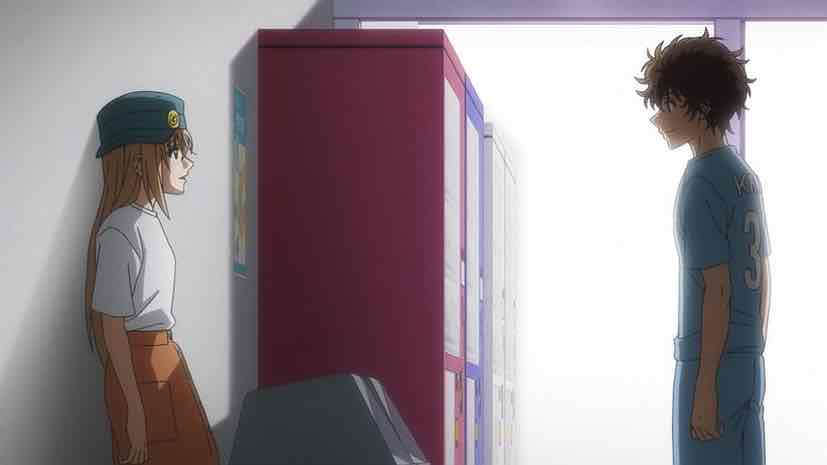
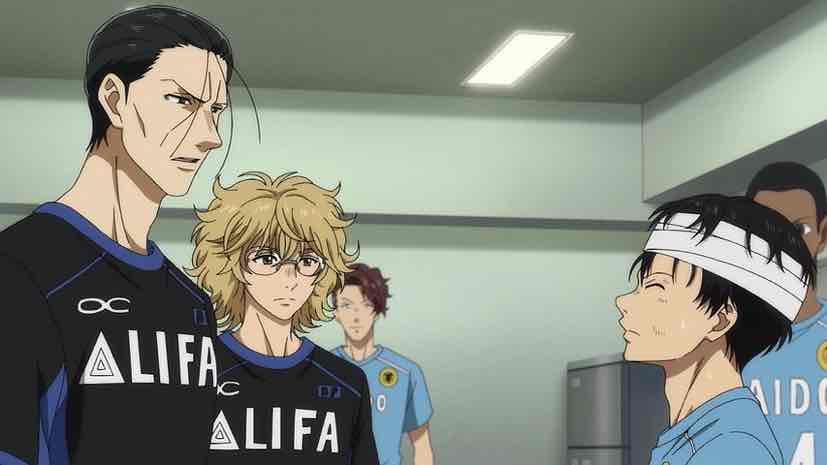
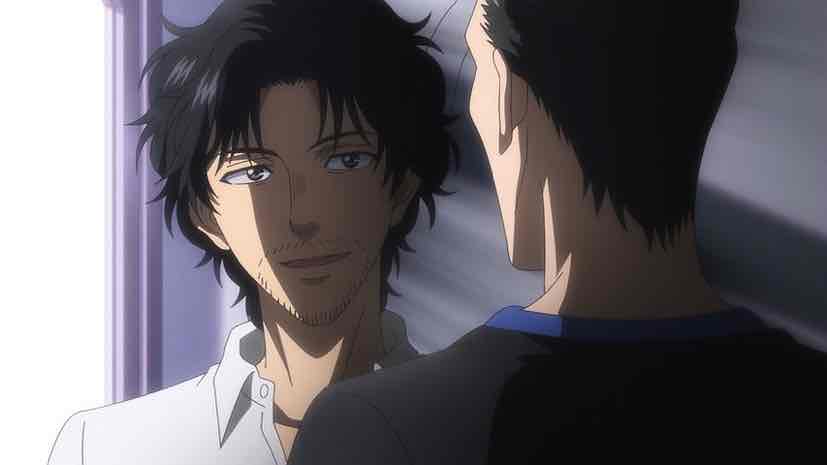

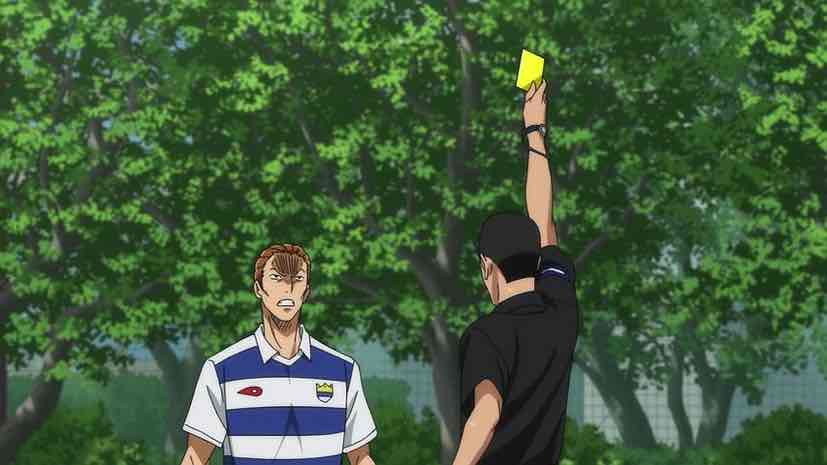
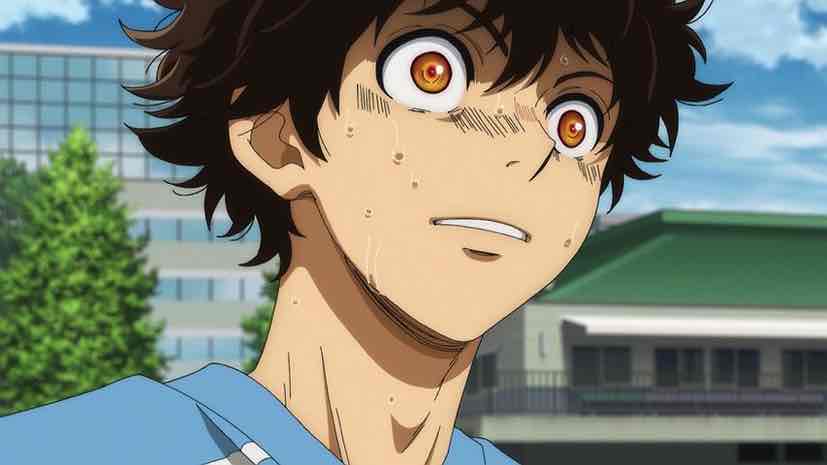
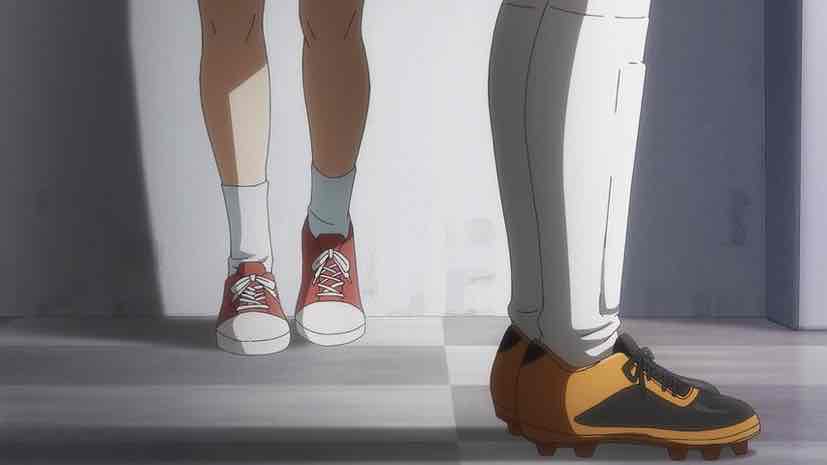
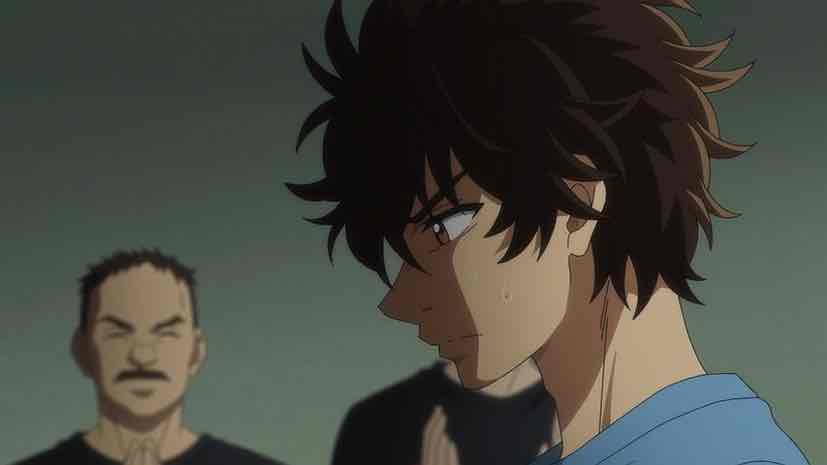

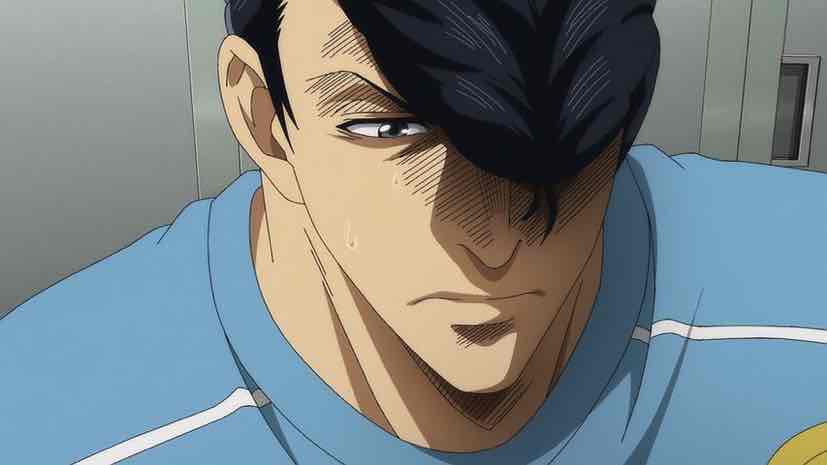
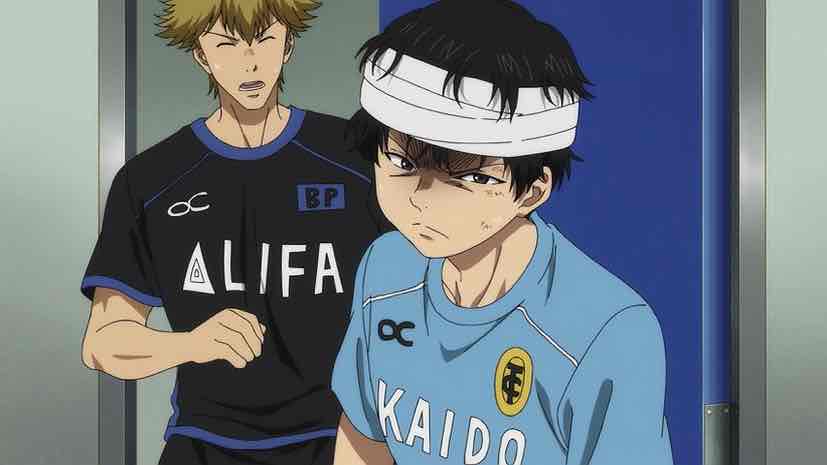

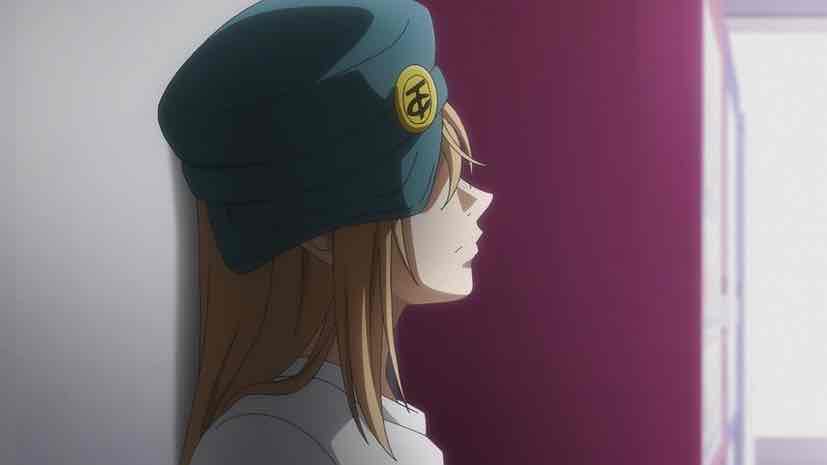
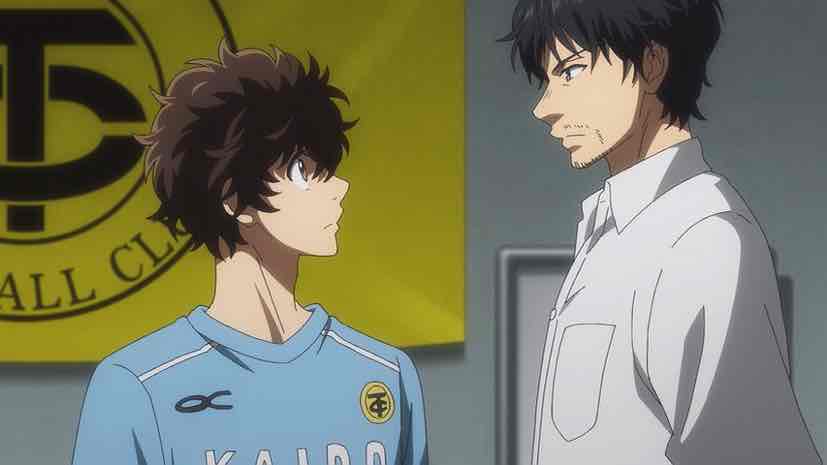
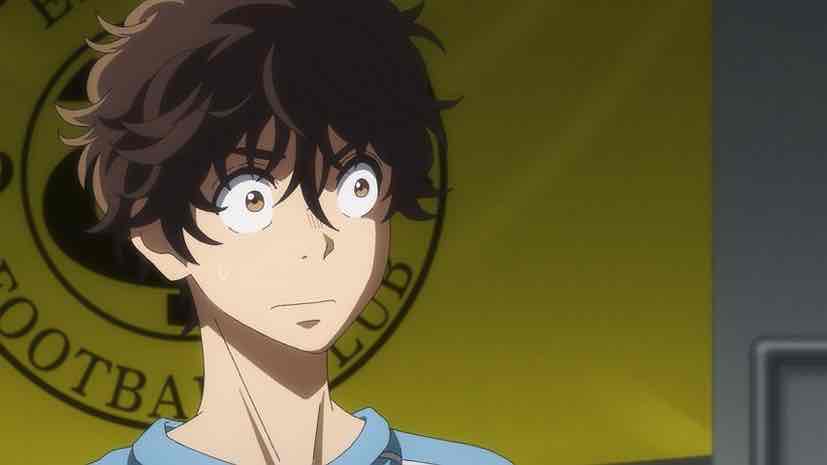
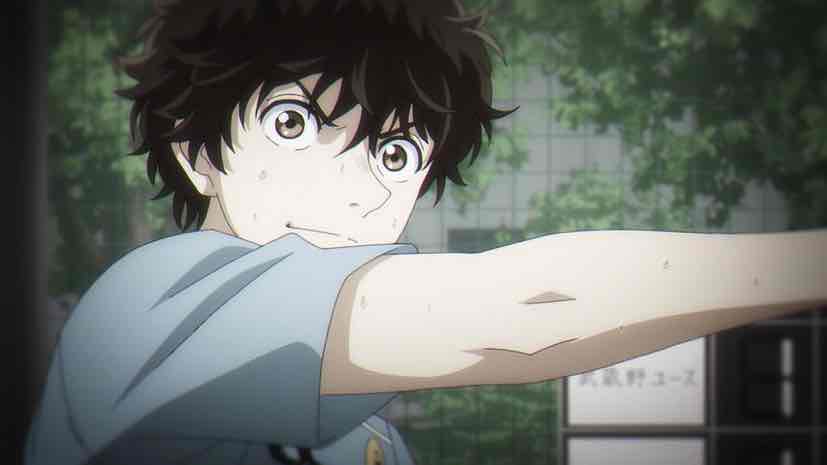
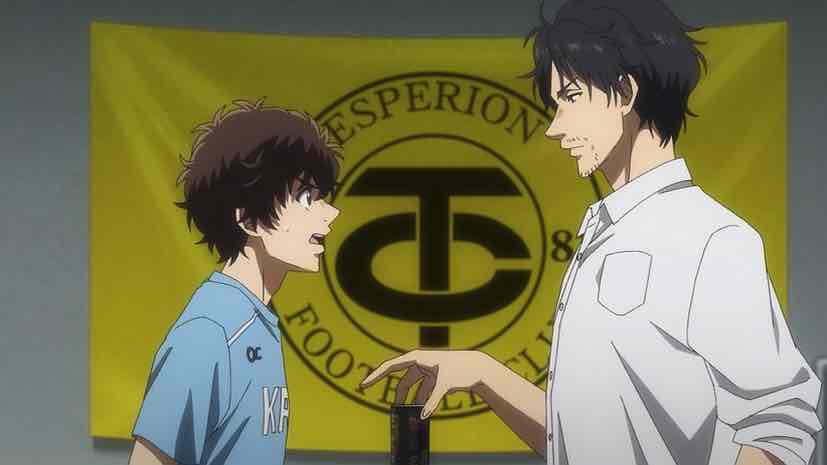
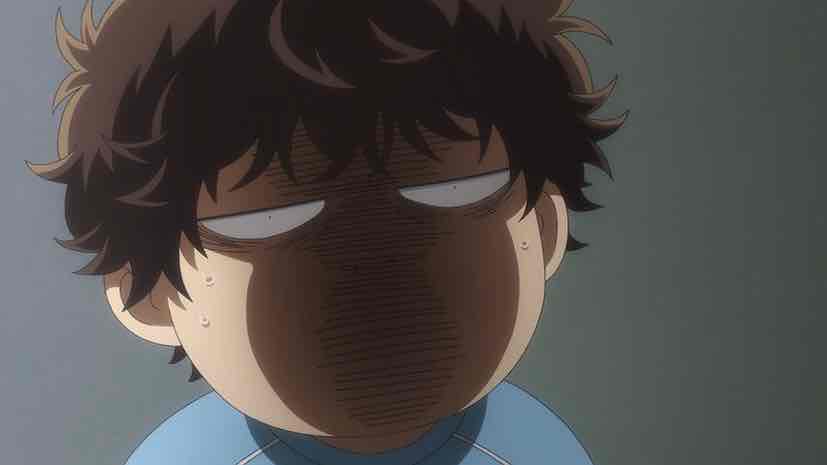
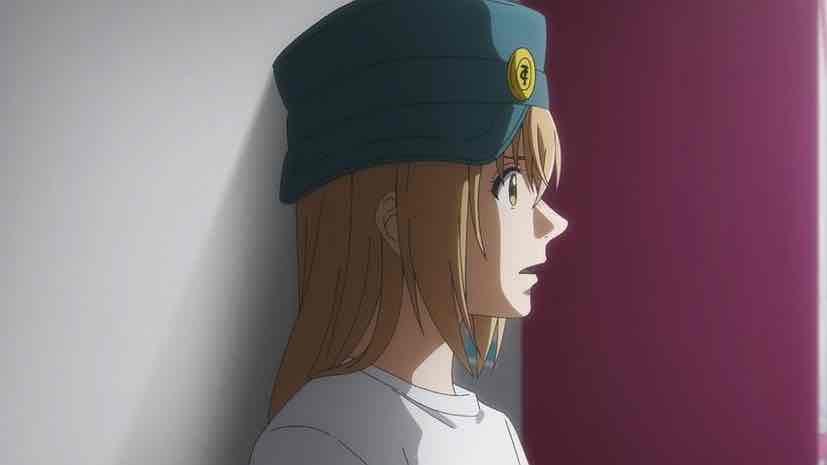
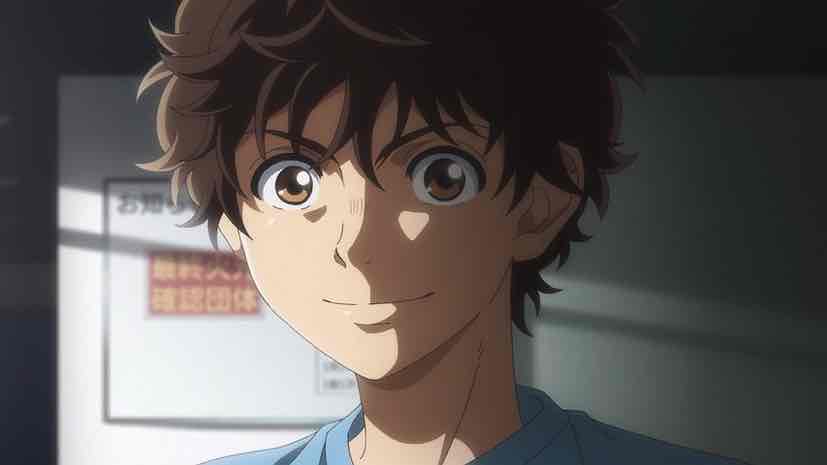
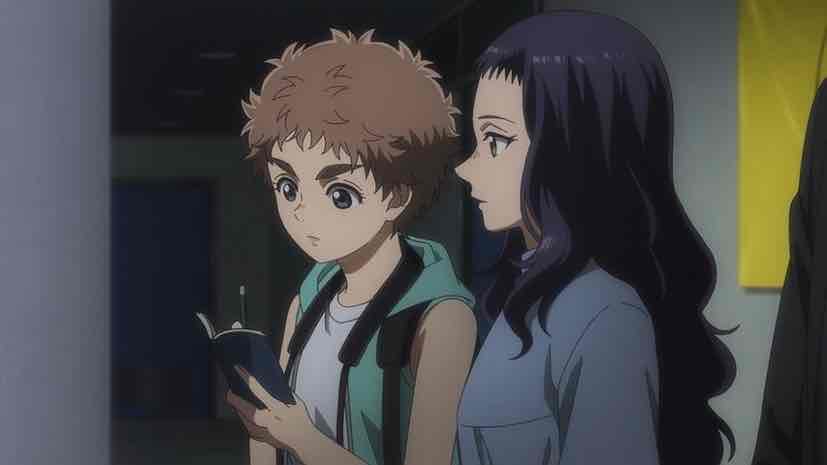
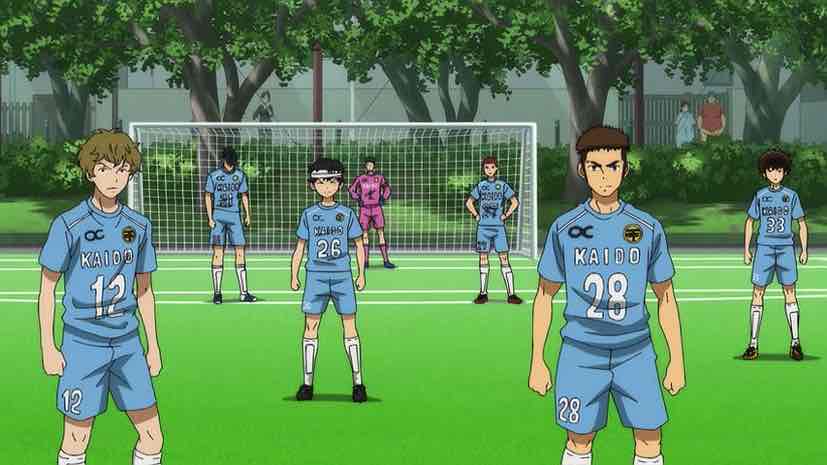
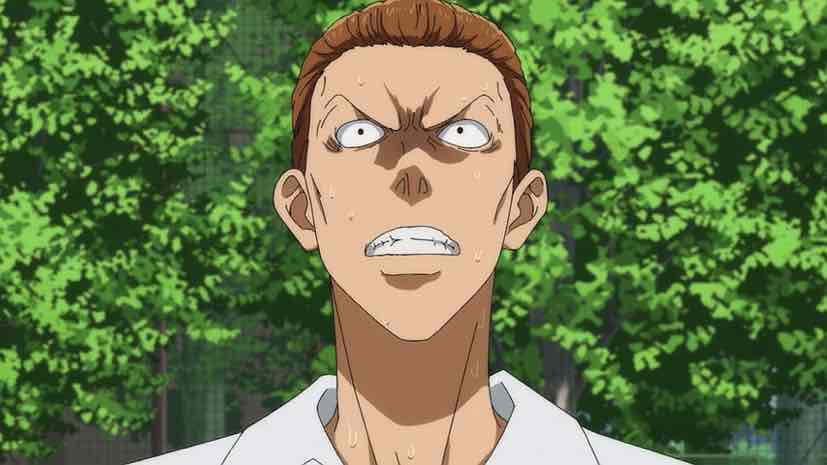
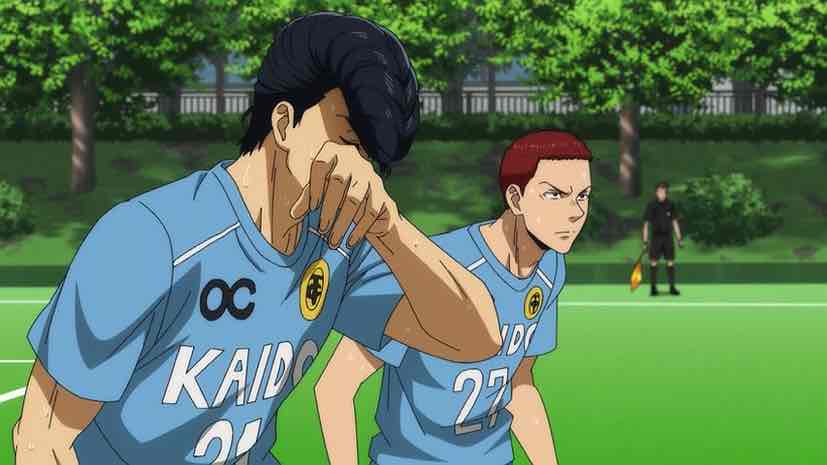
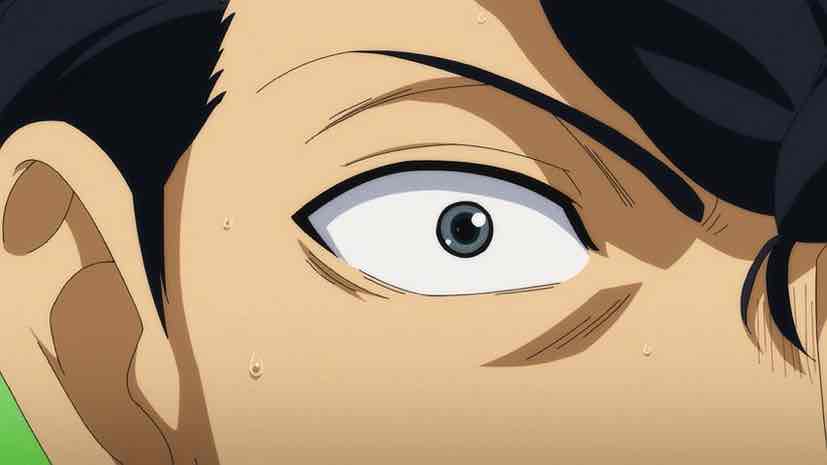
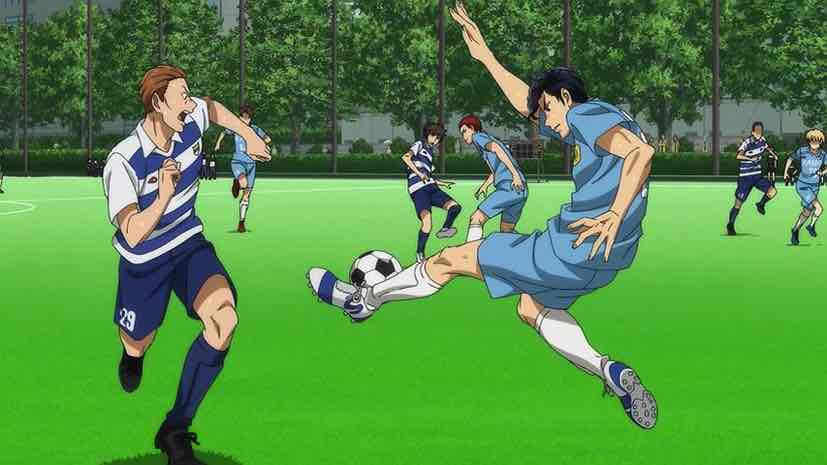
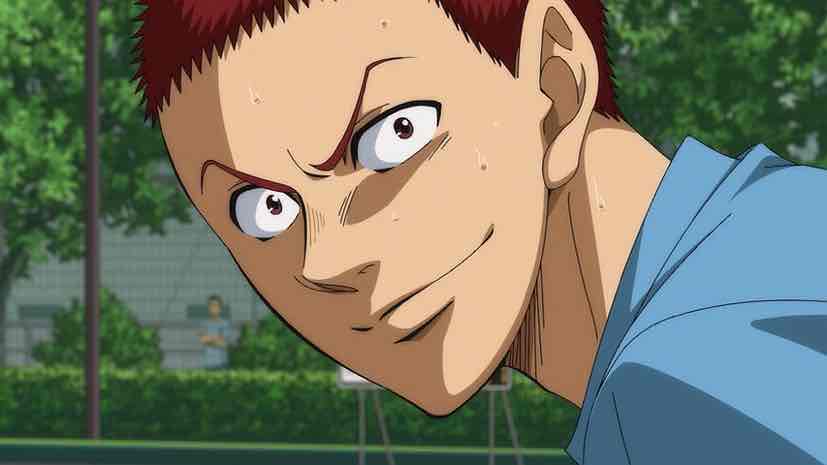
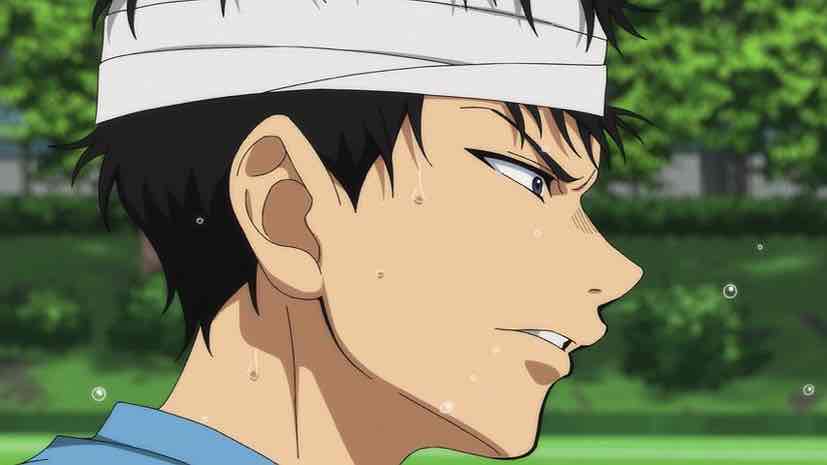

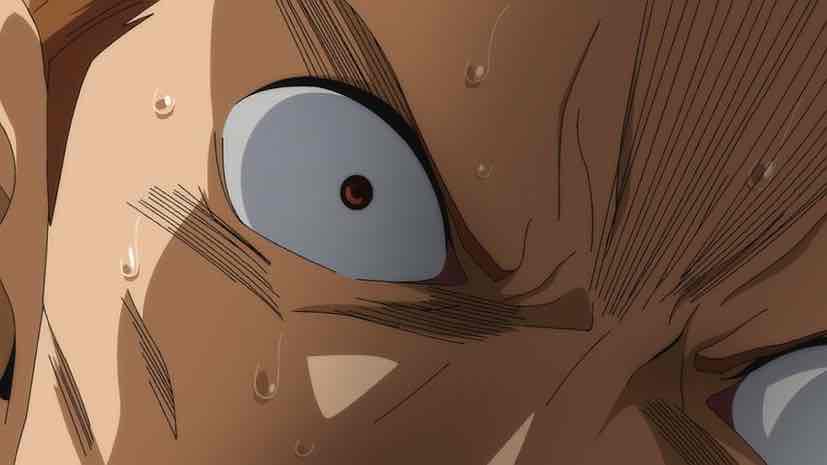

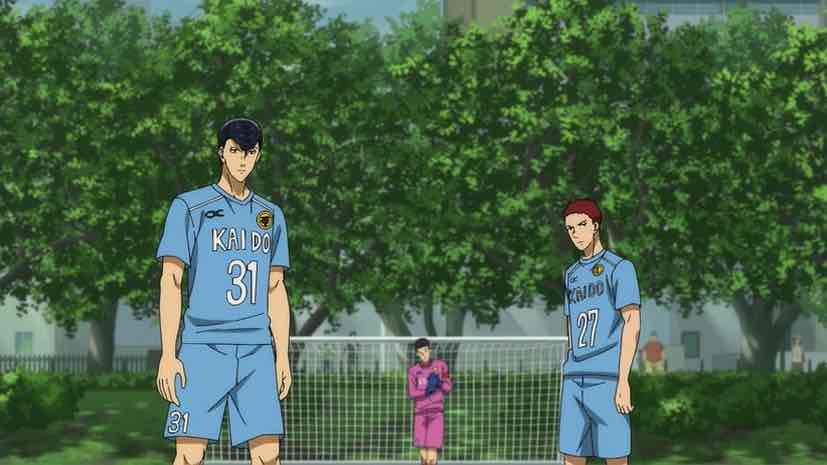
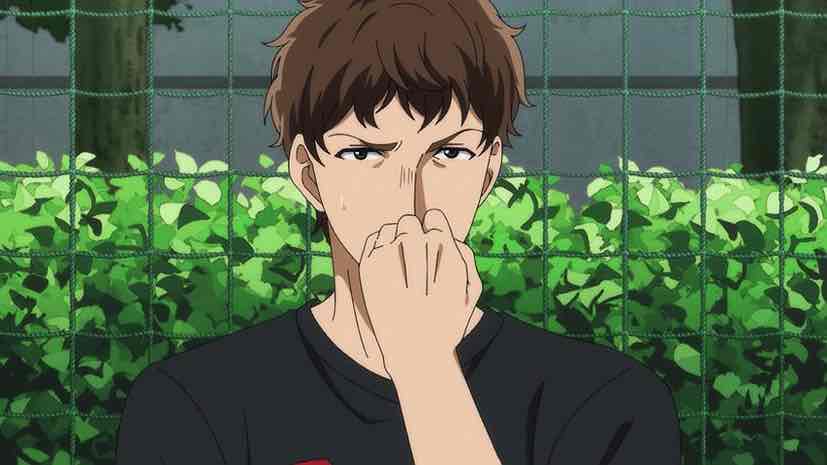
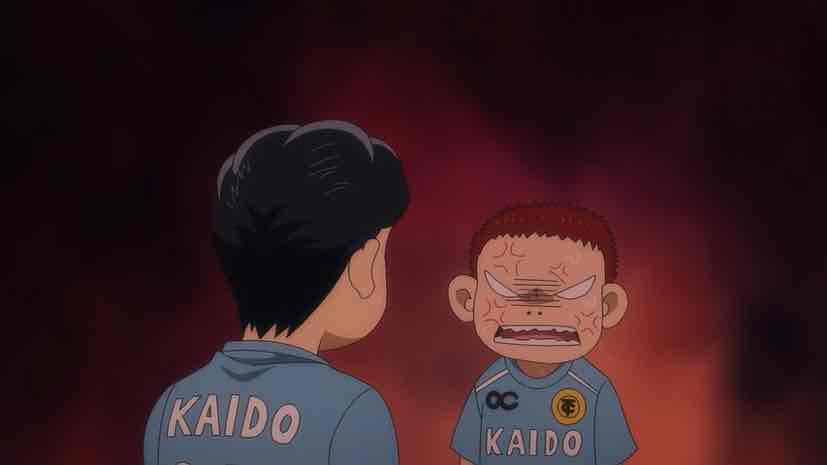
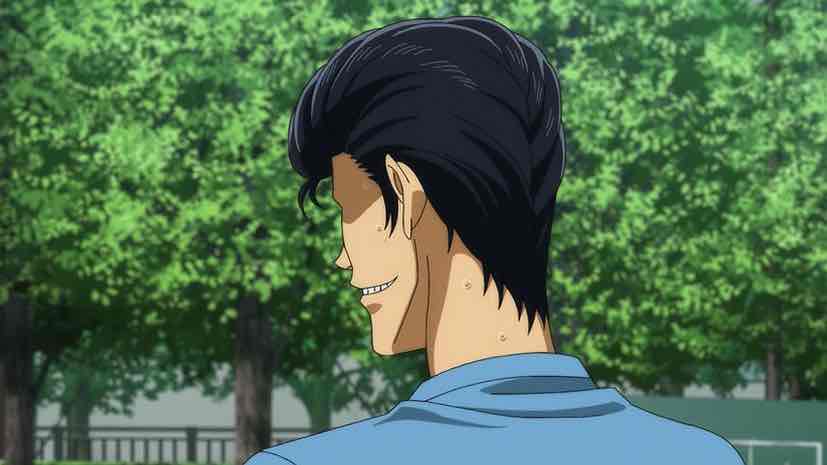
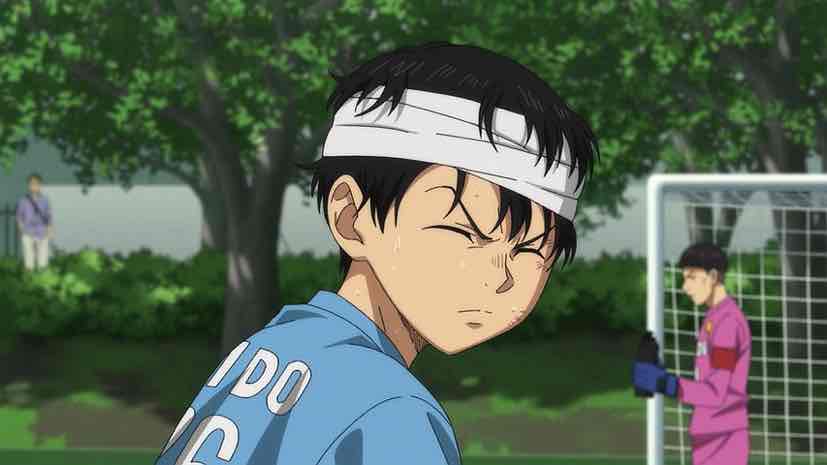
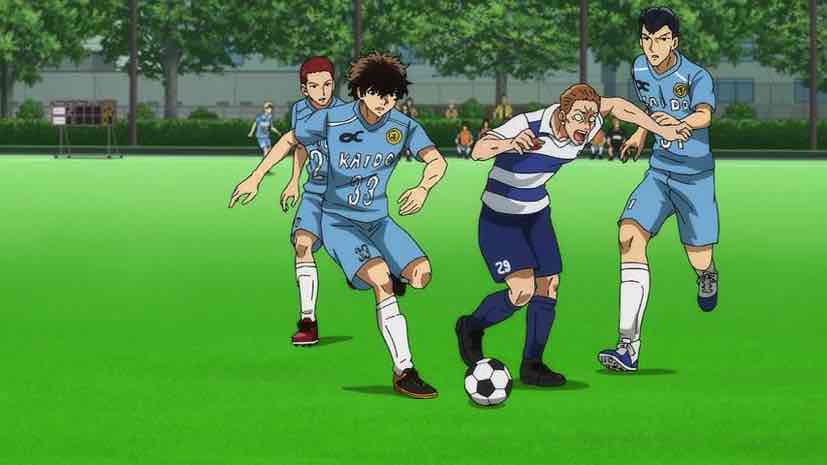

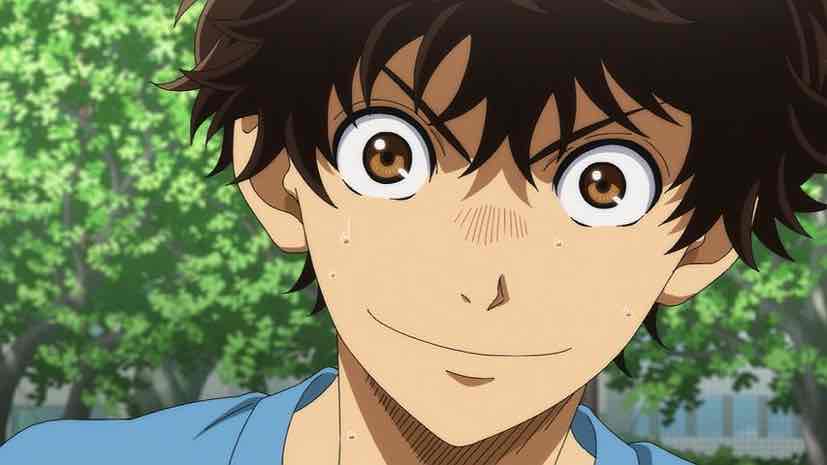
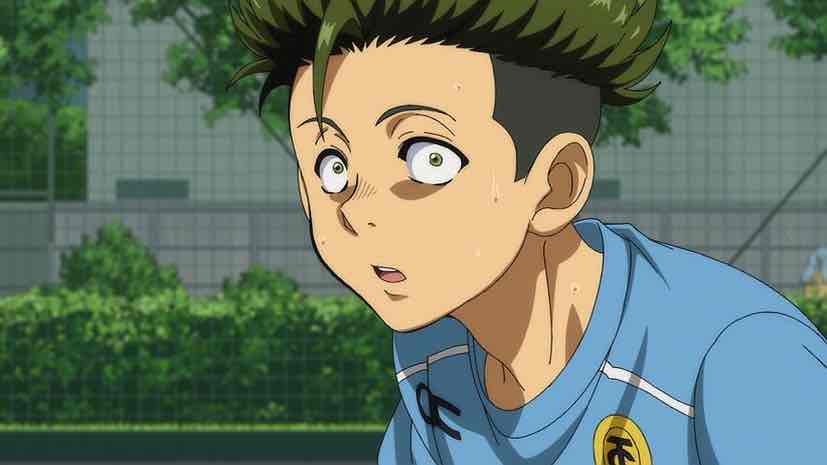
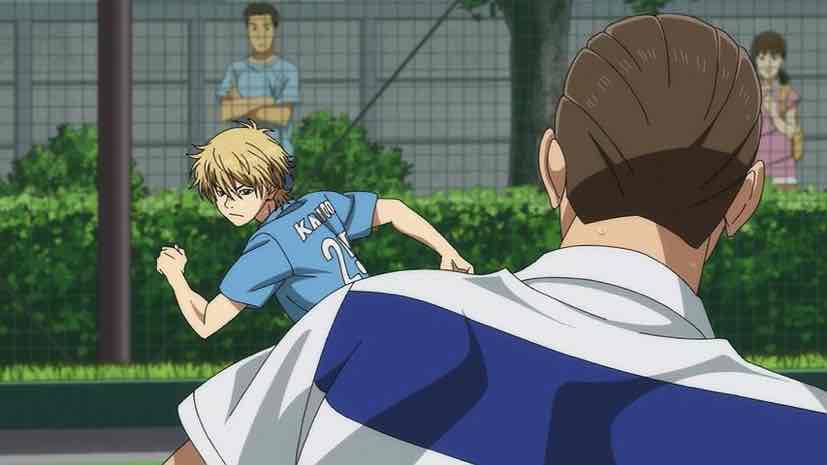
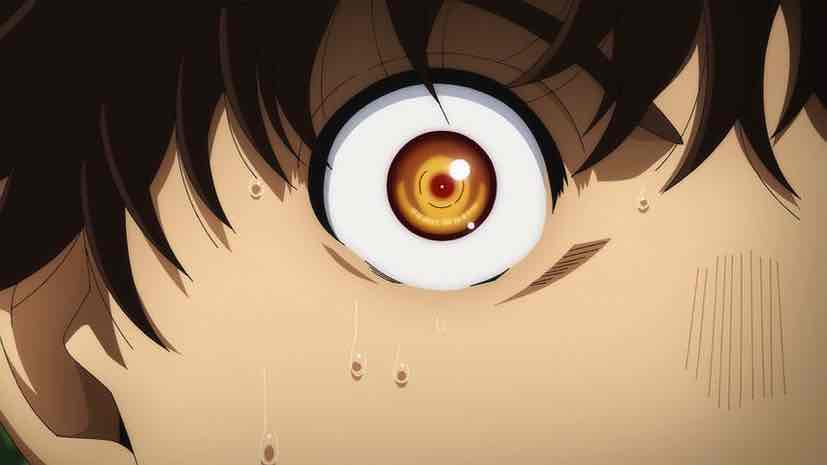
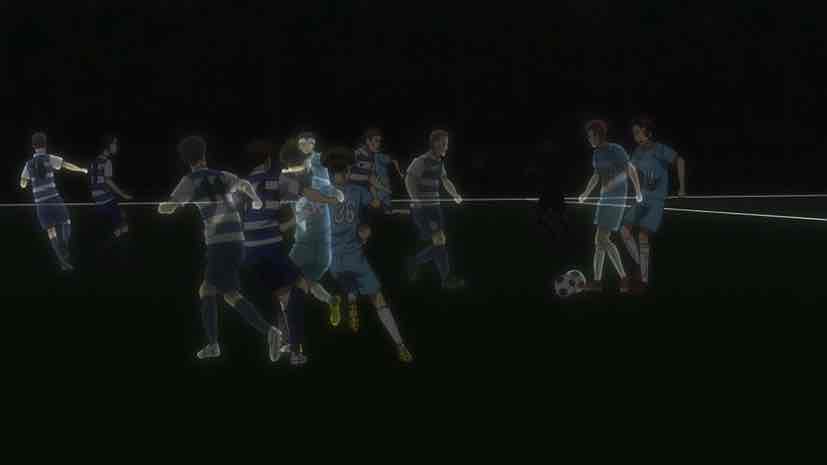
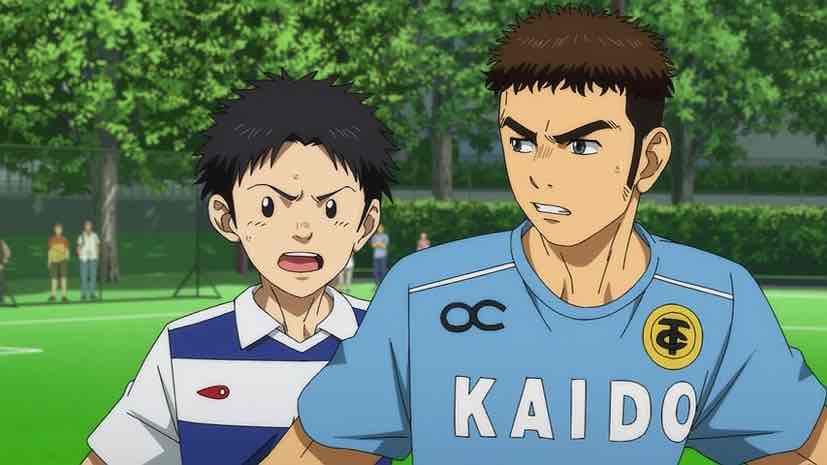


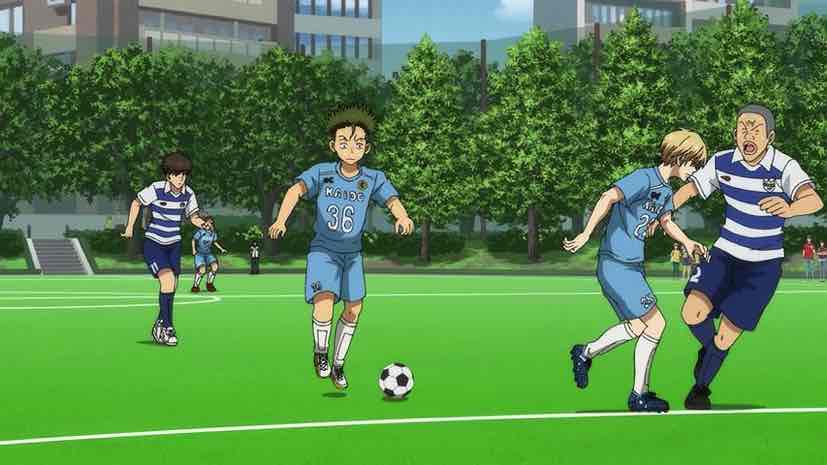
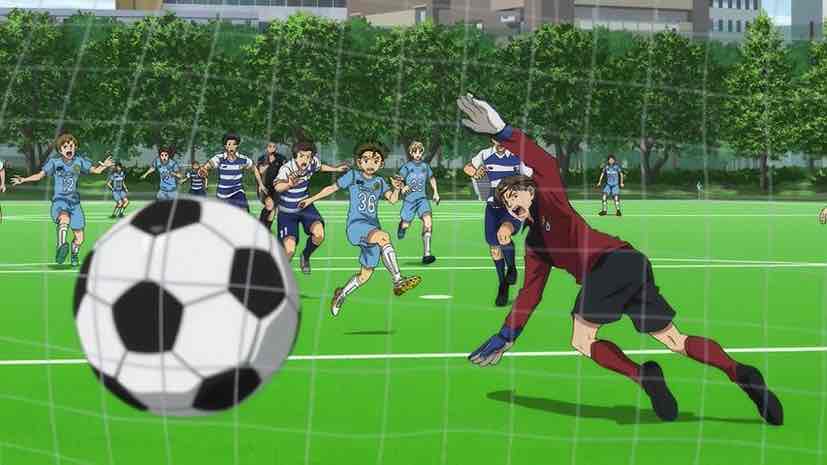


RurouniGaijinn
September 18, 2022 at 12:34 pm“Once Kuroda is beaten mentally (bullies hate being bullied more than anything)”
Think you mean Kaneda.
Jindujun93
September 18, 2022 at 2:30 pmI feel like this episode I noticed a few more animation errors than usual, but they definitely did portray the moments that counted well enough. It’s interesting that the translation chose the word ‘stagnation’ here for what Fukuda explained to Ashito – the fan translation of the manga used the term ‘delay’ to describe what’s happened with the Esperion defense, and to be fair I found the explanation a bit easier to follow there (basically him forcing himself into a position to score causing a delay to his teammates and their responses too).
A few little comedic moments that were cut out (like when Fukuda pulled aside Nozomi to talk, Ashito had some mental imaginery about how it could be because Fukuda could try to convince Nozomi to put him back to forward after all, lol), but nothing too big. Fukuda actually name-dropped some IRL players when he told Ashito about top-class fullbacks only going for offense when they know the defense is tight in the manga – in particular mentioning Philipp Lahm, Sergio Ramos, Maicon, Atsuto Uchida and Yuto Nagatomo.
But yeah. Plenty of good moments this time around. The chat with Hana. Kaneda finally getting bullied back. That goal. And much more good stuff is still to come – it would be a crime if most of these never ended up being animated.
Ryan
September 19, 2022 at 6:58 amThis is the only anime I can remember where while it’s still airing, I started to read the manga, and couldn’t stop reading it until I caught up. This series is just so good, and it would be a travesty if it didn’t get a second (and so on) season!